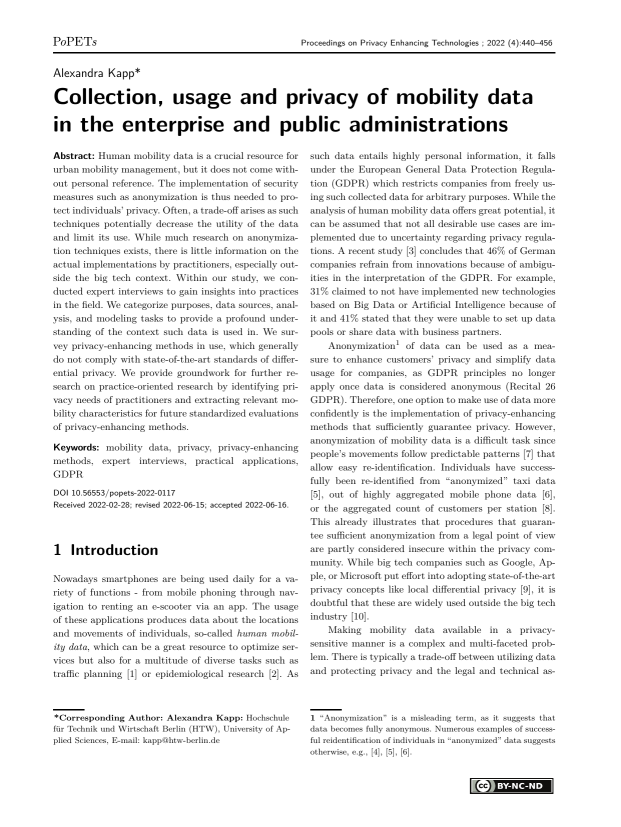Collection, usage and privacy of mobility data in the enterprise and public administrations
Authors: Alexandra Kapp (Hochschule für Technik und Wirtschaft Berlin (HTW), University of Applied Sciences)
Volume: 2022
Issue: 4
Pages: 440–456
DOI: https://doi.org/10.56553/popets-2022-0117
Abstract: Human mobility data is a crucial resource for urban mobility management, but it does not come without personal reference. The implementation of security measures such as anonymization is thus needed to protect individuals’ privacy. Often, a trade-off arises as such techniques potentially decrease the utility of the data and limit its use. While much research on anonymization techniques exists, there is little information on the actual implementations by practitioners, especially outside the big tech context. Within our study, we conducted expert interviews to gain insights into practices in the field. We categorize purposes, data sources, analysis, and modeling tasks to provide a profound understanding of the context such data is used in. We survey privacy-enhancing methods in use, which generally do not comply with state-of-the-art standards of differential privacy. We provide groundwork for further research on practice-oriented research by identifying privacy needs of practitioners and extracting relevant mobility characteristics for future standardized evaluations of privacy-enhancing methods.
Keywords: mobility data, privacy, privacy-enhancing methods, expert interviews, practical applications, GDPR
Copyright in PoPETs articles are held by their authors. This article is published under a Creative Commons Attribution-NonCommercial-NoDerivs 3.0 license.

